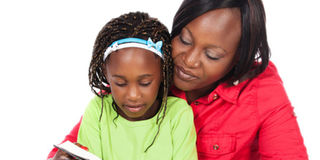Let the little ones read

Let the little ones read
What you need to know:
Books: It is often said that Ugandans have a poor reading culture. Godfrey Lugaaju speaks to two authors about how we can change this narrative.
Books: It is often said that Ugandans have a poor reading culture. Godfrey Lugaaju speaks to two authors about how we can change this narrative.
Saraya Namirembe, author
What do you do in regards to children literature?
Saraya Namirember is an author, with two children’s books. She recently started a project called the SOFT (Save Our Folktales), where they collect local folktales from communities and write them as illustrated children’s books in both local languages and English.
Is local folklore important to children?
Traditional folktales were a medium through which the elderly passed down communication to the young. They were laced with moral values about good conduct, hard work, persistence and values. I believe they are important to navigate the many pleasures of life.
Where do we go wrong in instilling a reading culture in children?
As glowing as the reading resume is, the education system is stifling it by promoting the ‘pass your exam’ mentality which has promoted the textbook. Textbooks are not bad but they offer short term solutions and short term answers. Children are pushed to cram answers that will come in the exams thus once the exam is done, the textbook answers are thrown away and altogether, reading is forgotten.
What were the challenges in inculcating the reading culture?
Some of our local schools and parents associate reading books in the local language as backward and parents are not keen on spending money on such books. Besides, the budget appropriated for books by schools is small. Even parents would rather buy a film for a child than a book.
How can we get children to read?
I think, we need to start reading to them as early as one month old because in the early years, a child is like clay, you can model any behaviour you want to see.
Discuss with them the characters in the books so that you can have a bond over these characters and let them choose what they want to read; do not dictate on this.
Hilda Twongyeirwe, author and Executive Director, Uganda Women Writers Association - FEMRITE
What do you think is hindering the urge of children to read?
When children are not availed books, then the culture of reading and the culture of books outside the classroom is not their culture. This can be from home or schools. Many homes cannot afford to avail their children with books. For some, it is not even about affordability but sheer lack of interest in books.
The children thus actually do not even think about reading because it is foreign to them. When they see other children reading they think they are bragging.
Some of us have the mentality that books are expensive and so we simply avoid bookshops and book fairs. If you can afford a birthday present of more than Shs2, 000, then you can afford a small book. Some books are as cheap as that amount.
What solutions would you recommend for the problem?
I believe that when children are availed with books at an early age, right from home and in their early education, they should be able to grow into readers.
Also, curriculum developers for government schools should borrow tips from private schools as those will benefit children who go to public schools as well. Schools should also be open to initiatives such as NGOs which bring reading and writing projects to schools.
What role can parents play in having children learn and love reading?
They should be role models. Children watch us; they know when we pretend and when we are serious. They will know that it is important to read when they see parents read. If we buy them books and we are not reading ourselves, they will not take it serious.
Instead of always taking children to visit those fancy restaurants, it is important to visit bookshops and book fairs as well.
What tips would you give to children for reading smart?
All stories are different and they all offer different ingredients. It is nice to just be an aggressive reader.
Never refuse to start a story because you think it is not interesting. Children should allow books to take them into other worlds.
They should reflect on whatever they read, the places mentioned, the people in the stories and the arguments.
That way, they will learn from books as much as they learn from real life.
We can change the narrative that Africans do not read. It is not inscribed on foreheads and it is not true. We can read and only need to read more. This is possible.




